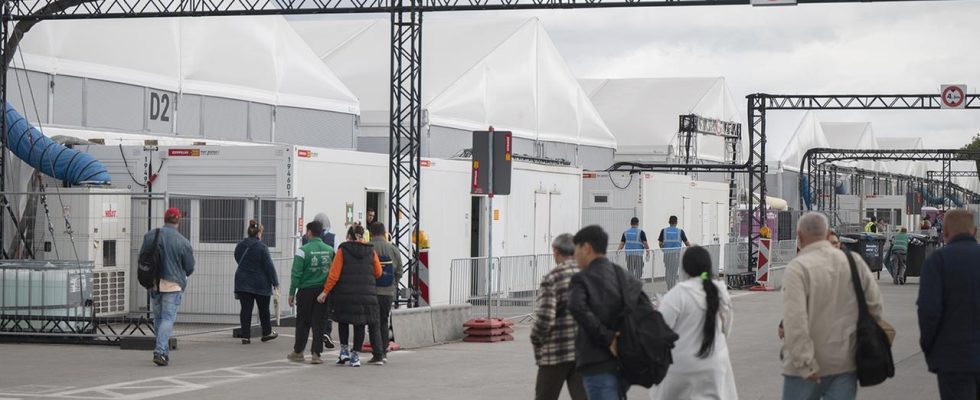In November, the federal and state governments agreed to introduce a payment card for refugees that was as uniform as possible. The municipalities are now putting pressure on it – and Bundestag President Bas is also calling for no longer to delay the introduction.
The calls for a rapid introduction of the cash card for asylum seekers are getting louder: The general manager of the German Association of Cities and Municipalities, Andre Berghegger, told the “Neue Osnabrücker Zeitung” that the corresponding agreement between the Prime Minister and the Federal Government must be implemented. “The card has to come this year.” The criteria should be in place in March, after which the call for tenders should take place and the card should then be issued across the board from summer to autumn, Berghegger continued.
Bundestag President Bärbel Bas called on the federal states not to hesitate any longer in introducing a payment card for asylum seekers. “The states have agreed to introduce the payment card and should now implement their decision,” the SPD politician told the newspapers of the Funke media group.
The federal and state governments had agreed that asylum seekers would receive at least part of their benefits as credit on a payment card. This is also intended to prevent migrants from sending cash to their home countries. The question of whether this requires an accompanying federal regulation led to a new dispute in the traffic light coalition. Democratic parties could “take the water out of the water” for right-wing populists if they consistently addressed the issue of migration and offered realistic solutions, emphasized Bas.
Berghegger: Payment card as “part of the solution”
The Greens recently expressed doubts as to whether laws would actually have to be changed as part of the planned introduction of the cash card. Berghegger said: “Nobody in the population understands anymore when agreements made are not adhered to. That is not a good sign for the state of politics.” According to Berghegger, the payment card is “part of the solution to how Germany can better control, order and limit migration.” According to the representative of the municipalities, it is important that the payment card is designed uniformly across the country, even if Bavaria and Mecklenburg-Western Pomerania have already declared that they will not take part in a nationwide tender.
The card also has to be expandable: “I think it would make sense if, for example, the identity of the owner including residence status is stored on the card and can be read out. The educational qualification could also be saved.” This would make work in the authorities easier. Berghegger said that the pocket money that has so far been paid out in cash to asylum seekers could be a so-called pull factor for some migrants to come to Germany. The cash card will have an “inhibiting effect”.
Bavaria, like Mecklenburg-Western Pomerania, where the awarding process started last week, had decided on its own approach to payment cards.
Barabara Schneider, BR, tagesschau, February 25, 2024 11:31 a.m

